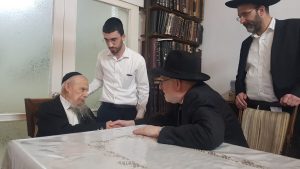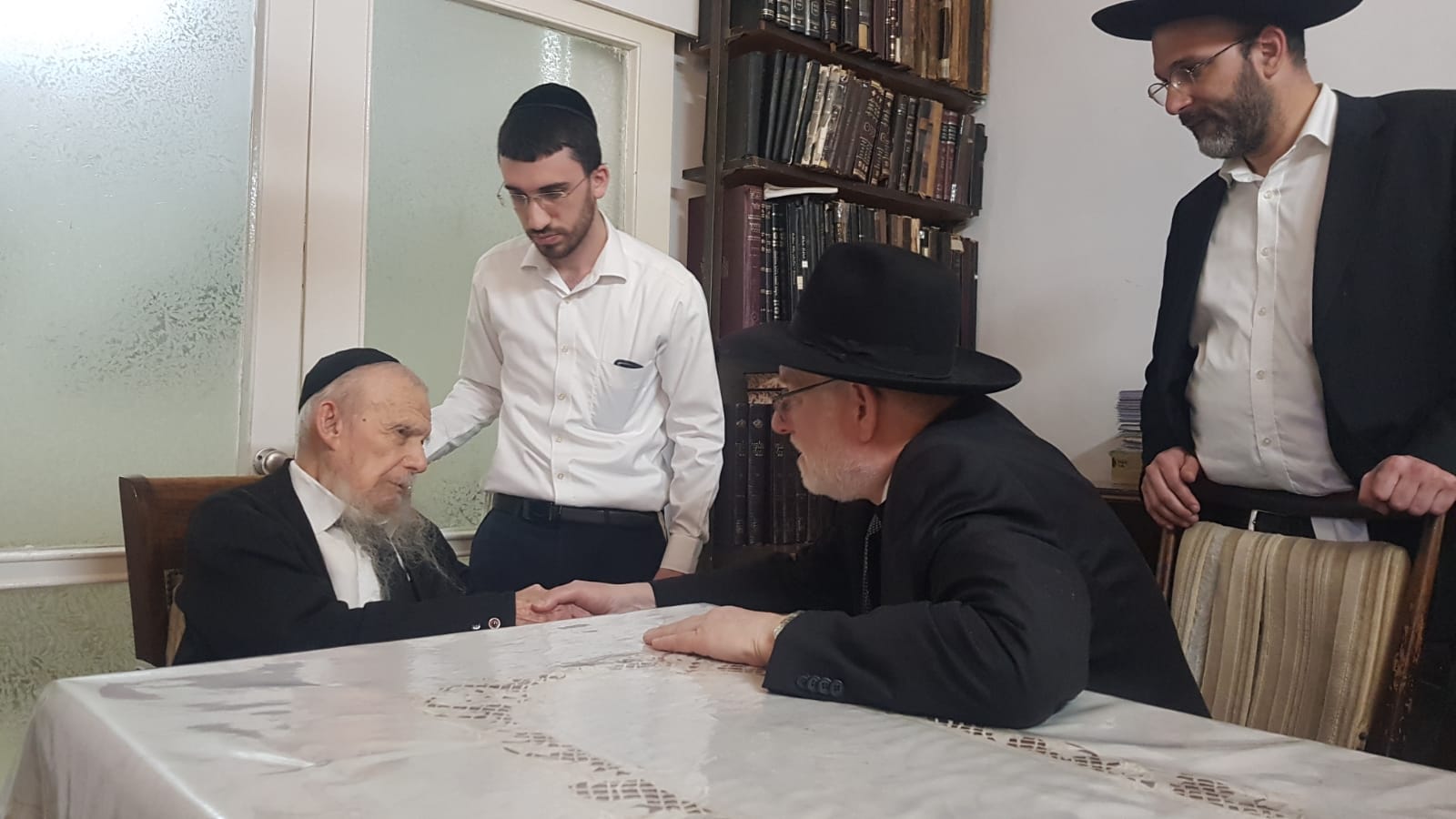
Our reading begins this week with the work and responsibilities of the family of Levi’s son Gershon, one of the three families of Levites. The family of Kehas was discussed in last week’s reading, and Merari follows Gershon. Each family had different responsibilities in the Mishkan, the Tabernacle, and especially when it moved. Who moved which type of vessel, wall, or beam, was all carefully mapped out, including the ages of those entrusted with these responsibilities.
During this past week, one of the world’s leading Jewish scholars passed away, Rav Gershon Edelstein zt”l (of blessed memory). He carried the name of the same son of Levi who begins our reading.
Rav Edelstein initially shared responsibilities, as it were, with Rav Aharon Leib Shteinman zt”l, who passed away in the winter of 2017, and Rav Chaim Kanievsky zt”l, whom we lost just over a year ago. Again there were three pre-eminent leaders, and Rav Edelstein was the last of that era of leadership in the community of scholars.
I am old enough to remember people talking about the void in leadership after Rav Moshe Feinstein zt”l passed away in 1986, Rav Elazar Shach zt”l in 2001, and Rav Yosef Elyashiv zt”l in 2012. Those at the highest levels of Jewish scholarship recognize that each generation fails to quite achieve the level of knowledge of the previous one. But it is those less knowledgeable who claim something radically different will follow.
One major Jewish paper, for example, claimed days ago that in the wake of Rav Edelstein’s passing, “the inheritance wars have begun.” One thing I do know: this is nonsense.
One doesn’t become the leading scholar of Torah Judaism by running for office. On the contrary, many leaders were practically unknown until their predecessors, in their declining years, insisted they step forward. I was a student in Israel during the time when Rav Shach was the unquestioned leader of the community. I do not recall ever hearing of Rav Shteinman. It was the same Rav Shach who asked both Rav Elyashiv and Rav Shteinman to take public roles.
Ever since the time of the Sanhedrin, the Jewish Court of Elders founded by Moshe at HaShem’s command, the leaders of the congregation have taught and elevated their successors, who have gained recognition among their peers as the “scholars among scholars.” It is not as formal as the division of responsibilities outlined in the Torah for the families of the Levites, but each leader respects the scholarship of those still greater in knowledge and wisdom, and that is how the greatest attain recognition.
Those of us who are nowhere near this level of scholarship often cannot perceive the difference, but they can. We know that there will always be accepted leaders, as there have been for thousands of years.


